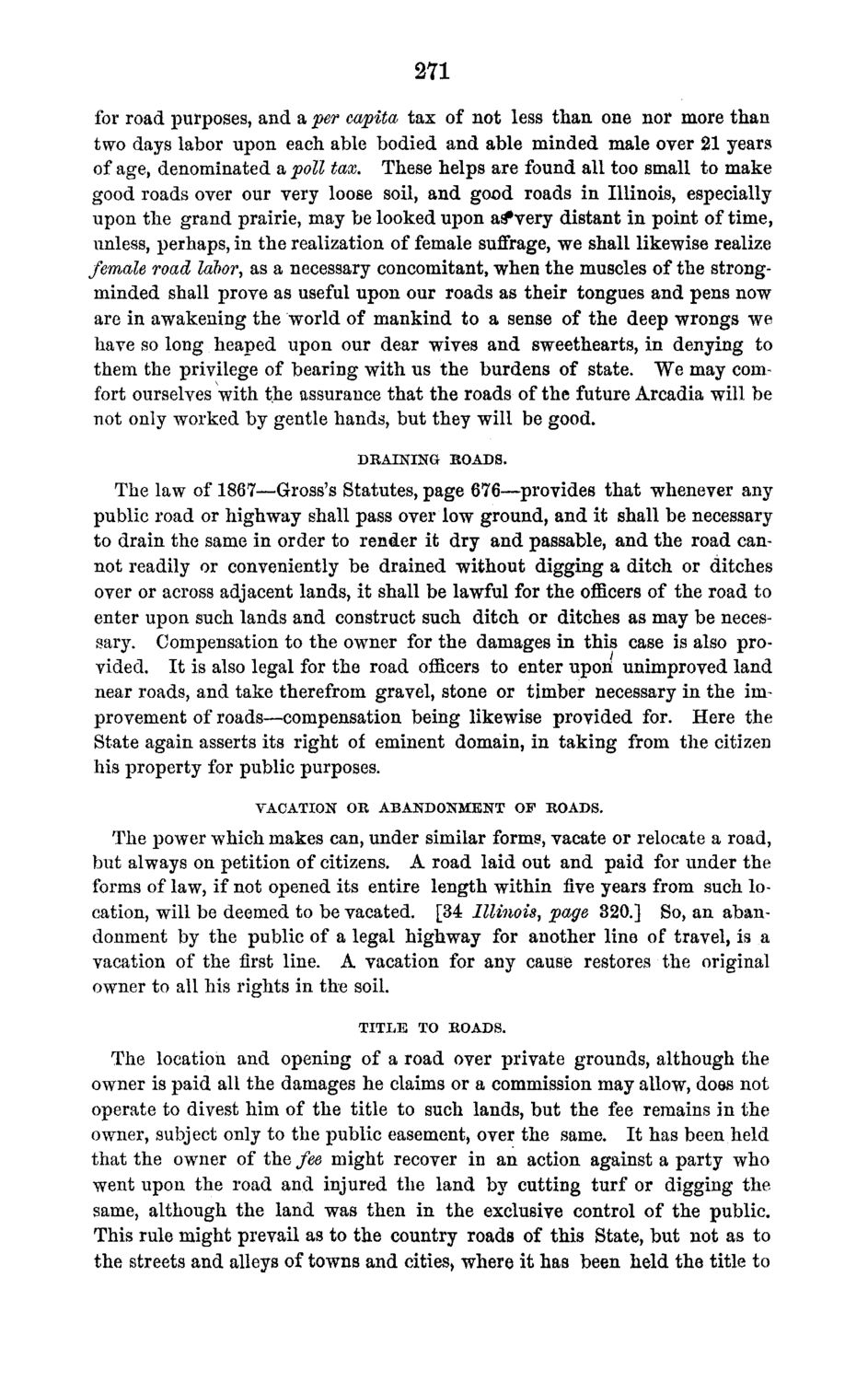| |
| |
Caption: Board of Trustees Minutes - 1870
This is a reduced-resolution page image for fast online browsing.

EXTRACTED TEXT FROM PAGE:
271 for road purposes, and a per capita tax of not less than one nor more than two days labor upon each able bodied and able minded male over 21 years of age, denominated a poll tax. These helps are found all too small to make good roads over our very loose soil, and good roads in Illinois, especially upon the grand prairie, may be looked upon as*very distant in point of time, unless, perhaps, in the realization of female suffrage, we shall likewise realize female road labor, as a necessary concomitant, when the muscles of the strongminded shall prove as useful upon our roads as their tongues and pens now are in awakening the world of mankind to a sense of the deep wrongs we have so long heaped upon our dear wives and sweethearts, in denying to them the privilege of bearing with us the burdens of state. We may comfort ourselves with the assurance that the roads of the future Arcadia will be not only worked by gentle hands, but they will be good. DRAINING ROADS. The law of 1867—Gross's Statutes, page 676—provides that whenever any public road or highway shall pass over low ground, and it shall be necessary to drain the same in order to render it dry and passable, and the road cannot readily or conveniently be drained without digging a ditch or ditches over or across adjacent lands, it shall be lawful for the officers of the road to enter upon such lands and construct such ditch or ditches as may be necessary. Compensation to the owner for the damages in this case is also provided. It is also legal for the road officers to enter upon unimproved land near roads, and take therefrom gravel, stone or timber necessary in the improvement of roads—compensation being likewise provided for. Here the State again asserts its right of eminent domain, in taking from the citizen his property for public purposes. VACATION OR ABANDONMENT OF ROADS. The power which makes can, under similar forms, vacate or relocate a road, but always on petition of citizens. A road laid out and paid for under the forms of law, if not opened its entire length within five years from such location, will be deemed to be vacated. [34 Illinois, page 320.] So, an abandonment by the public of a legal highway for another line of travel, is a vacation of the first line. A vacation for any cause restores the original owner to all his rights in the soil. TITLE TO ROADS. The location and opening of a road over private grounds, although the owner is paid all the damages he claims or a commission may allow, does not operate to divest him of the title to such lands, but the fee remains in the owner, subject only to the public easement, over the same. It has been held that the owner of the fee might recover in an action against a party who went upon the road and injured the land by cutting turf or digging the same, although the land was then in the exclusive control of the public. This rule might prevail as to the country roads of this State, but not as to the streets and alleys of towns and cities, where it has been held the title to
| |